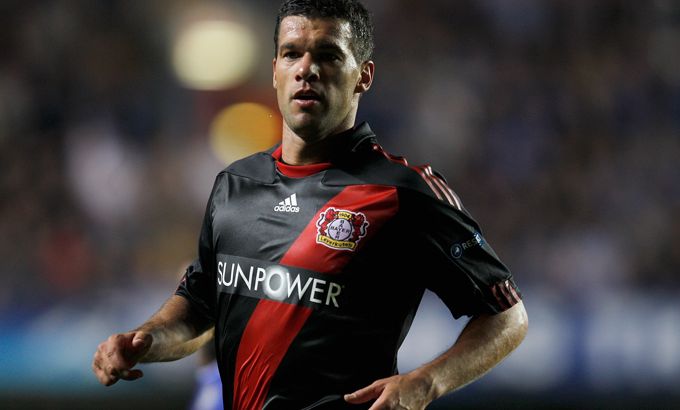
HIV: ‘Breaking the conspiracy of silence’
As the African Cup of Nations kicks off in South Africa, we examine the role of football in the fight against AIDS/HIV.
| No subject is off limits in the first ever global talk show hosted from Africa in which Redi Tlhabi talks frankly to inspiring and intriguing personalities from across the world. |
How far are we in our fight against HIV/AIDS? Are we moving towards finding a vaccine?
As the African Cup of Nations kicks off in South Africa, this week on South2North Redi talks about football and HIV with UNAIDS International Goodwill Ambassador and retired footballer Michael Ballack; UNAIDS executive director Michel Sidibé; and scientist and HIV researcher Professor Lynn Morris.
Keep reading
list of 4 itemsAmid global polarisation, the pandemic agreement encourages cooperation
Sunak apologises after report finds UK government covered up blood scandal
Philippines plans vaccination drive as whooping cough outbreak claims lives
Ballack has captained Germany’s national team and is among the country’s top goal scorers. He has played for the world’s top teams including Bayern Munich and Chelsea.
Redi asks Ballack about his recent resignation from football, and how he has coped with a difficult year.
“I’m a positive guy, you know. Of course it was not easy on the pitch, off the pitch as well, family-wise .… But everything is fine, I have three healthy boys at home. The football is behind me now. I have had a really really good career. I’m really pleased with my career. The end wasn’t so well, but it’s a part of football sometimes … But all together I’m really happy,” he says.
Ballack speaks about his injuries and his refusal to play against Brazil after falling out with his coach but concludes that finding a career in football has been life-changing for him.
“It’s something really special, when you love something and you can do it as your profession. That’s what I’ve done my whole life, so far, and that’s why I’m really pleased … And now I want to give something back.”
Ballack is an international ambassador for UNAIDS and has been a part of promoting the “Be smart. Protect yourself” campaign. The campaign is targeted to preventing new HIV infections in young people.
Redi asks Ballack about the stigma still attached to the disease and how he has coped with being a celebrity associated with the fight against HIV.
“I’m just a sportsman, but we need to speak about it, don’t be shy. But also on the other side, get the right treatments … protect themselves and get the right information beforehand.”
Michel Sidibé, who is also the under-general secretary of the United Nations, took over the UNAIDS programme from Peter Piot in 2009. Asked how much has changed in recent years in the fight against the disease, he says:
“Today it’s different, with people like Michael Ballack, we are breaking the conspiracy of silence, people are coming out, people are not scared anymore, and people know that if they have access to treatment they can live longer.”
Sidibé points to almost 56 countries, who have managed to change their HIV trajectories in recent years.
“Prevention programmes are working: a country like Malawi has had a 70 percent reduction in new infections in a decade.”
Redi challenges Sidibé on the monetary aid coming into African countries which is sourced predominantly from the West.
“Almost 90 percent of the African people, who are on treatment today, are on treatment based on resources coming from PEPFAR [Presiden’ts Emergency Plan for AIDS Relief] US Emergency Fund or Global Fund, which is not sustainable. This dependency crisis, we need to address it. We are seeing a new movement coming from African leaders, a new vision, the roadmap of the African Union, where we are really trying to help countries to look at one they can do to have an alternative approach.”
Professor Lynn Morris leads a research team that has made a significant breakthrough in the search for an HIV vaccine. The study found two HIV infected women who had developed antibodies which could be studied in order to deepen their knowledge about the body’s ability to fight the virus.
Morris explains how the virus develops and mutates in different countries, making developing a vaccine increasingly complex.
“HIV is very variable, and the virus changes all the time. We need to mimic that process when we vaccinate people in order to induce these special type of antibodies …. It’s basic research but it is a clue … We need to keep up the pressure in terms of fighting HIV.”
South2North can be seen each week at the following times GMT: Friday: 1930; Saturday: 1430; Sunday: 0430; Monday: 0830. |
